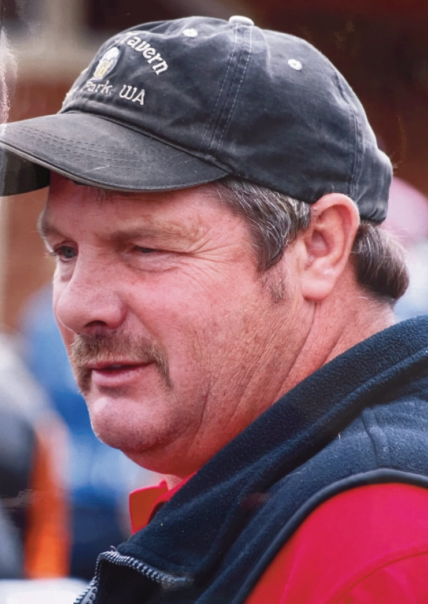Radio dispute still generating static
Published 6:50 am Monday, May 13, 2024
SOUTH BEND — During a heated May 10 meeting, the Pacific County 911 Dispatch Center (PacCom) Administrative Board voted to deny radio etiquette changes proposed by the Pacific County Sheriff’s Office.
Trending
It has been a hot-button issue for two months after Sheriff Daniel Garcia changed his agency’s radio protocol in mid-March. This different order of, “Hey you, this is me, and this is my message” is at odds with how the county’s other law enforcement agencies communicate.
Tension boiling
The other law enforcement agencies — including the Raymond Police Department, South Bend Police Department, Long Beach Police Department and Shoalwater Bay Police Department — use the method, “Hey, it is me; I am talking to you; this is my message.”
Garcia’s primary argument for the change has been officer safety, contending that his model is safer for officers. His point is that if a unit’s number is cut off by the first few seconds of a radio transmission, a call for help may not be adequately heard.
‘Three different times this has come up for discussion, twice with the ops board and once here already. … Each time this has been voted on, it has been turned down. I think we need to quit playing with this and say, ‘Here is what we are going to do.’’
David Glasson, Pacific County 911 Dispatch Center (PacCom) Administrative Board memeber
County dispatchers and other law enforcement agencies have opposed the change and have called on Garcia to reverse his decision. Dispatchers have stated that the differing method has caused momentary confusion on several occasions.
PacCom Director Ed Heffernen said that the only thing a dispatcher could do now is either ignore the deputies until they use the locally accepted method, or ask them to repeat their traffic by saying, “unit calling” — which he noted were not appropriate options.
“That’s just evil,” Garcia said.
Back and forth
In the time since Garcia’s change, the topic was taken up by the PacCom Radio Ops Board on March 28, when his request for a change was denied. The topic was handed over to the administrative board on April 12 after the sheriff’s office disregarded the vote — but no formal action was taken.
The admin board then returned it to the operations board for a formal recommendation. The ops board voted for the second time early last week to deny Garcia’s change. Garcia missed the vote as a result of being 30 minutes late to the meeting.
The recommendation to deny the Garcia method was handed back to the admin board on May 10.
Members of the admin board were vocal on May 10 about their annoyance with the ongoing issue.
Garcia has said his deputies often work alone in the county’s sparsely populated areas, and says using the established protocol will put them at risk.
“First off, just as a rebuttal, the sheriff seems to think he is alone and is the only one out there at risk,” said PacCom admin board voting member and Long Beach City Administrator David Glasson. “Long Beach may be a city, but we are farther away than they are in most cases, so that is a bunch of BS.”
“Three different times this has come up for discussion, twice with the ops board and once here already,” Glasson continued. “You had an expert, Steve Reinke, say we don’t want to do this on two different [radio protocol] channels. Each time this has been voted on, it has been turned down. I think we need to quit playing with this and say, ‘Here is what we are going to do.’”
Safety options
Other methods are available to ensure extra communication with a deputy or officer. Sheriff’s office vehicles were historically equipped with GPS trackers that could be accessed with the push of a button, including as recently as former Sheriff Robin Souvenir’s term.
“If it is truly about the safety issue, and I get that, none of us wanna see an officer down or not go home,” dispatcher Jaime Souvenir said. “We have Spillman mapping that is not utilized by deputy’s vehicles. We can track their vehicle on Spillman mapping and that per the map of the U.S.”
Spillman technology “allows dispatchers to easily see the real-time locations” of vehicles equipped with it, according to a company website.
“We also have a button on the Spillman module that will alert us if there is panic or something happening and that is not currently being used. Digital identifiers can be used on their digital radio, which they are currently not being used, which would tell us which unit is calling,” Souvenir said. (Souvenir is the spouse of the former sheriff.)
None of these options are currently in operation. PacCom has been exploring options and estimates it wouldn’t be prohibitively expensive. Garcia, who has been in office since Jan. 1, 2023, did not put them into operation, including while PacCom was under his administration.
“We have been talking about those since I took office,” Garcia said. “Yes, since we took office, we have been asking those questions, and yes, I want those things going.”
Hot seat
A formal decision on the radio-protocol disagreement came around 30 minutes into the meeting when Garcia made a formal motion to back his radio change. The motion did not obtain a second from any other member. Chairwoman Julie Struck, the mayor of South Bend, declared it “dead.”
Instead, the board motioned and seconded keeping the radio etiquette as it was before Garcia’s change. The vote attempt and discussion were repeatedly disrupted by Garcia, who verbally went toe-to-toe with Struck.
“If I could make a point of order,” Garcia said. “So, uh, with that, there were two different ways of communicating on [the] fire [districts’ radio frequency].”
“We are not talking about fire; we are talking about…” Struck said as a laughing Garcia cut her off.
“We are talking about the police band, and you are very aware of what the issue is and trying to cloud the issue by bringing fire into it. There is two different ways right now and you know exactly what we are talking about,” Struck said. “Everyone in this room knows the issue we are talking about. Clouding the issue does not help anyone.”
“I am not clouding any issue,” Garcia replied.
Good enough for state patrol
Struck clarified, again, that the motion was for law enforcement only and to keep radio etiquette as it was before Garcia’s unilateral change, which generated additional comments from Garcia.
“Also, nobody in this room except for myself and Undersheriff [Mike] Ray pay a price for this decision,” Garcia said.
“Obviously, the [Washington State Patrol] uses this [PacCom’s] system as well, and they are in every corner of this state,” Struck said. “The same as you, and you have been unable to convince [your] ops board peers that this is a valid argument, and twice they have voted to stick with this, and this is the motion that is on the table — is to stay with the status quo, the way it has been.”
‘When I did this, I wasn’t intending to change how everything is done, and everybody else made it like this.’
Daniel Garcia, Pacific County sheriff
Pacific County Commissioners Lisa Olsen, Jerry Doyle and David Tobin were also involved in the meeting and sided with the dispatchers and the ops board. Olsen and Struck elaborated that the sheriff’s office is involved in a “cooperative that everyone pays into” for PacCom services.
“When I did this, I wasn’t intending to change how everything is done, and everybody else made it like this,” Garcia said.
“That’s where you missed the point,” Glasson said.
“You are in an arena where your actions and your department’s actions affect those of others, and that is the issue at hand. You may not have intended that, but that is the result,” Struck stated.
“I disagree; they don’t,” Garcia replied.
The board passed the motion, and Garcia was the only nay vote.
Following the meeting, the sheriff’s office has continued to use its own method. The PacCom administration board is expected to discuss potential policies and sanctions.









